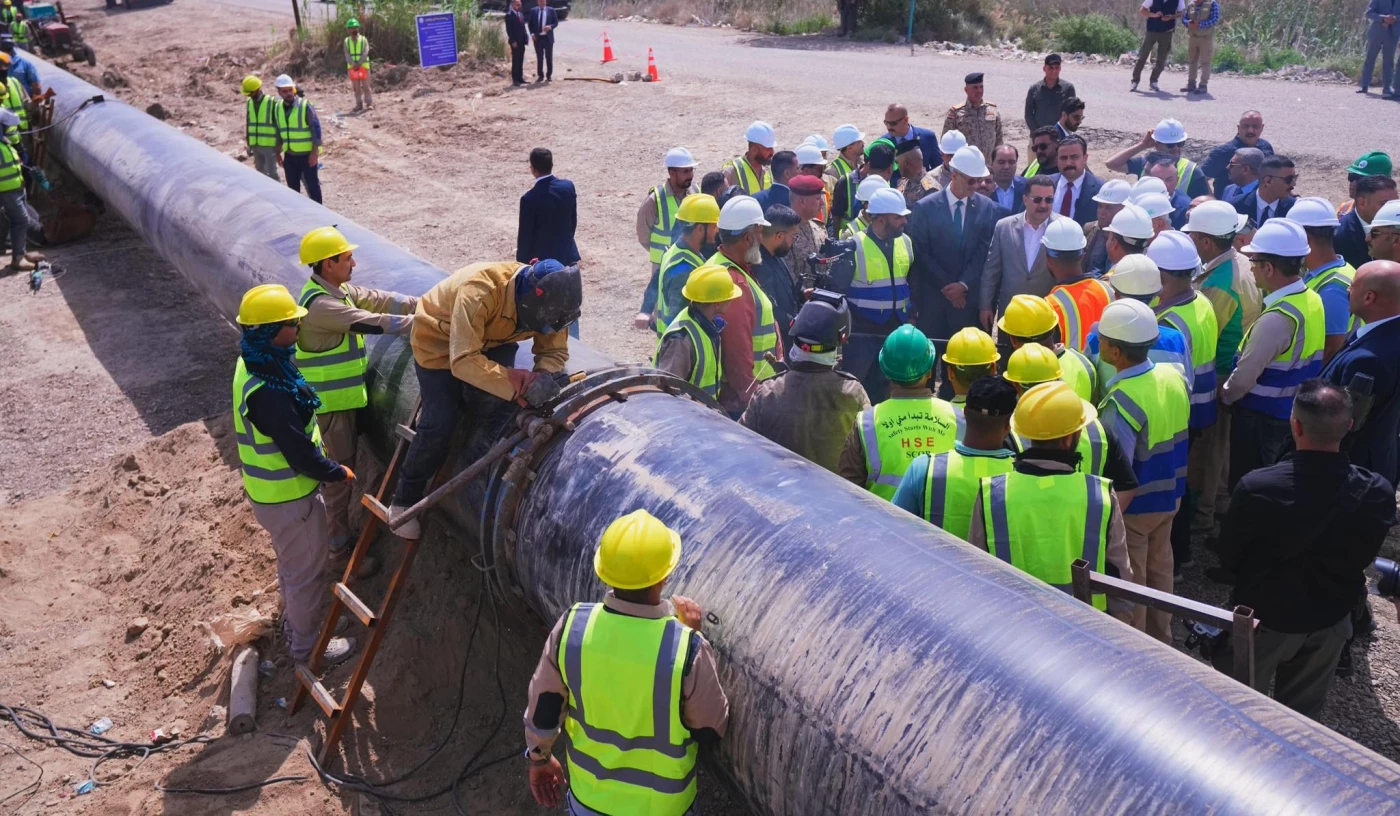DUBAI, UAE - Iraqi Prime Minister Mohammed Shia' al-Sudani directed the removal of all obstacles hindering the progress of the gas pipeline project from Mahmudiya district to Bismayah power station in Baghdad, during a field visit on Thursday.
The Iraqi premier inspected the 43-kilometer pipeline, which has a capacity of 800 million standard cubic feet per day, and reviewed the progress of construction, according to a statement from his office.
Sudani “emphasized the strategic importance of the project in securing gas supply for power generation,” and “directed that all administrative and legal requirements be fulfilled to remove any obstacles along the pipeline’s path,” the statement added.
The statement also noted that 75 percent of the project has already been completed, and that advanced techniques have been used to prevent damage to the pipeline beneath the highway.
As part of his tour, Sudani also visited the construction site of the overpass linking the Two-Story Bridge with the Suspension Bridge in central Baghdad, expressing appreciation for the workers on the sites and their dedication to meeting deadlines.
Iraqi Oil Minister Hayyan Abdul Ghani accompanied Sudani on the inspection.
“The project receives direct support from the Prime Minister through his field follow-ups. The 42-inch diameter pipeline will help meet the electricity needs of citizens and ensure a stable power supply in the country,” according to the Ministry of Oil statement.
Ali Ward Hammoud, director general of the Oil Projects Company, said that work has begun on the pipeline’s crossings and remains on track for completion within the designated 120-day timeframe.
The US earlier in March declined to renew a sanctions waiver allowing Iraq to buy electricity from Iran as part of President Donald Trump’s “maximum pressure” campaign against Tehran. On the heels of Washington’s decision, Iraq has begun trying to address its over-reliance on Iran to fuel its power grid.
Iranian gas supplies currently account for between 30 to 40 percent of Iraq’s energy needs. These imports are especially crucial during the summer months when temperatures can reach 50°C and energy demand peaks.



 Facebook
Facebook
 LinkedIn
LinkedIn
 Telegram
Telegram
 X
X


